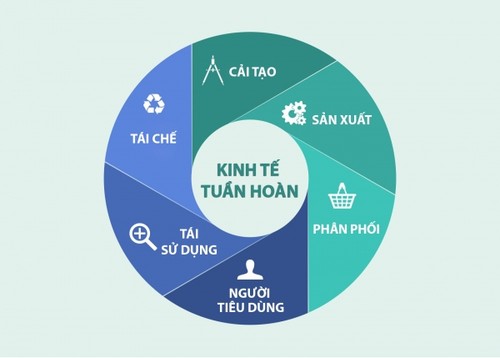 (Photo: internet) (Photo: internet) |
The Resolution of the 13th National Party Congress sets out an orientation for a green economy and an environment-friendly circular economy. The 2021-2030 Socio-Economic Development Strategy encourages the development of a circular economy to efficiently use the outputs of production.
The Prime Minister recently approved a project on Vietnam’s circular economic development in which Vietnamese and foreign-invested businesses in Vietnam like Tan Hiep Phat, Vinamilk, TH Group, Nestlé, Coca-Cola, and Heineken have designed recycling and re-use processes toward a circular business model.
Nguyen Quoc Khanh, R&D Director of Vinamilk, says his company has invested in environment-friendly technology.
"We have invested resources in environment-friendly technology, minimized the use of fuels and materials, and harmonized the interests of stakeholders to ensure sustainable development. Livestock producers are transparent in their use of antibiotics and chemicals. They have promoted organic livestock production and installed solar energy systems in farms and factories," said Khanh.
Many circular business models have been applied to recycling programs with encouraging results.
Nguyen Hoa Cuong, Deputy Director of the Central Institute for Economic Management, said: "This is an important project because we delve into many other aspects than just the circular economy. It’s important that the models be applicable in Vietnam, especially when implementing green growth strategies."
Experts emphasize the role of consumers in promoting a circular business model and encourage them to choose green products and boycott businesses that have a negative impact on the environment. Consumers’ growing preference for a green lifestyle and a "green market" will require businesses to adopt "green transition" solutions and use recycled materials. Businesses are encouraged to develop a long-term strategy to move toward a circular business model and seek “green financing” from banks and other credit sources.